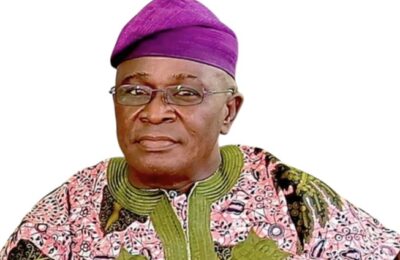In a world soaked in moral decadence and dripping with the venom of corruption, one man became God’s last definition of hope — Noah, the righteous exception in a universe of ruin. His life stood as a divine punctuation in an era where sin became a civilization and conscience had drowned in the flood of vanity. While men turned their hearts into graveyards of truth, Noah built an ark of obedience in the midst of mockery. He was not supernatural; he was simply spiritual — a man whose integrity became a monument of mercy amidst a collapsing moral architecture.
The Holy Scripture declares, “But Noah found grace in the eyes of the Lord” (Genesis 6:8). That verse is a thunderclap across eternity — a reminder that grace is not found in crowds but in consecration. Noah was among men, yet distinct from them. He lived in their streets but not by their standards. While others feasted on folly, he fasted on faith. His righteousness was not an inheritance of birth but a discipline of belief. In a generation that canonized compromise, Noah chose consecration. His difference was his deliverance.
The world of Noah was a mirror of our own — chaotic, carnal, and consumed by the religion of self. Men had become architects of abomination, crafting pleasure out of perversion. Yet, Noah’s obedience became the paradox of preservation. Like a lighthouse standing against a ravenous storm, he bore the weight of divine responsibility without flinching. Every hammer he lifted, every plank he nailed into the ark was not just carpentry — it was prophecy in motion. He built salvation with his sweat, not sermons.
The ark was not merely a structure of wood; it was a covenant sculpted in time. “By faith Noah, being warned of God of things not seen as yet, moved with fear” (Hebrews 11:7). That “fear” was not terror but reverence — the sacred awe that births obedience. While the masses mocked, he measured. While they sinned, he sealed. His life thundered an ancient principle: that divine favour often singles a man out for ridicule before it crowns him with reward. Noah’s favour was not comfort; it was a commission.
Noah’s story exposes the anatomy of divine selection — that God can plant greatness in the midst of godlessness. He was among men, yet heaven’s fingerprint was upon him. His obedience became oxygen for a suffocating world. Like a star refusing to be swallowed by the night, Noah radiated virtue in the valley of vice. The flood was not just punishment; it was purification. God used waters to erase wickedness and rewrite history with holiness. In that deluge of destruction, Noah floated on the wings of favor.
The tragedy of Noah’s generation was not ignorance but indulgence — the worship of pleasure over purpose. They mistook God’s patience for permission until judgment came like a thief in daylight. Yet, in that chaos, Noah’s righteousness echoed as an anthem of divine remembrance. He proved that a man can still walk with God when the world runs from Him. “Noah was a just man and perfect in his generations, and Noah walked with God” (Genesis 6:9).
Today, the modern world stands once again on the brink of a moral flood. Greed drowns compassion; lust submerges love; truth gasps for breath beneath the waves of deceit. Yet God still seeks a Noah — a man or woman who dares to build when others are busy breaking. The favor that found Noah still searches for hearts uncorrupted by the pollution of convenience. As ancient as the ark, yet as fresh as dawn, Noah’s legacy reminds us that hope can still be born in a hopeless age, and that divine grace, like rain, still falls on the faithful.
In the final analysis, Noah was not a god among men — he was simply a man who chose God among gods. And that singular choice redefined eternity.
“The Lord knoweth them that are His” (2 Timothy 2:19).
For even in the rot of humanity, God still reserves a remnant — a Noah, a beacon, a breath of hope when the world holds its breath before judgment.
– Inah Boniface Ocholi writes from Ayah – Igalamela/Odolu LGA, Kogi state.
08152094428 (SMS Only)




